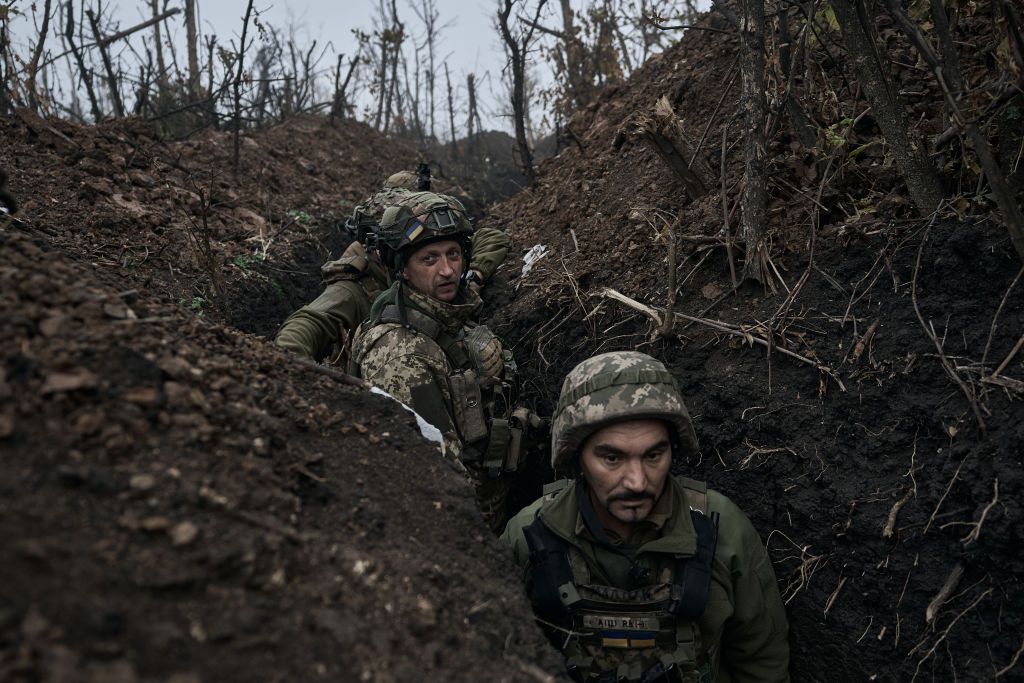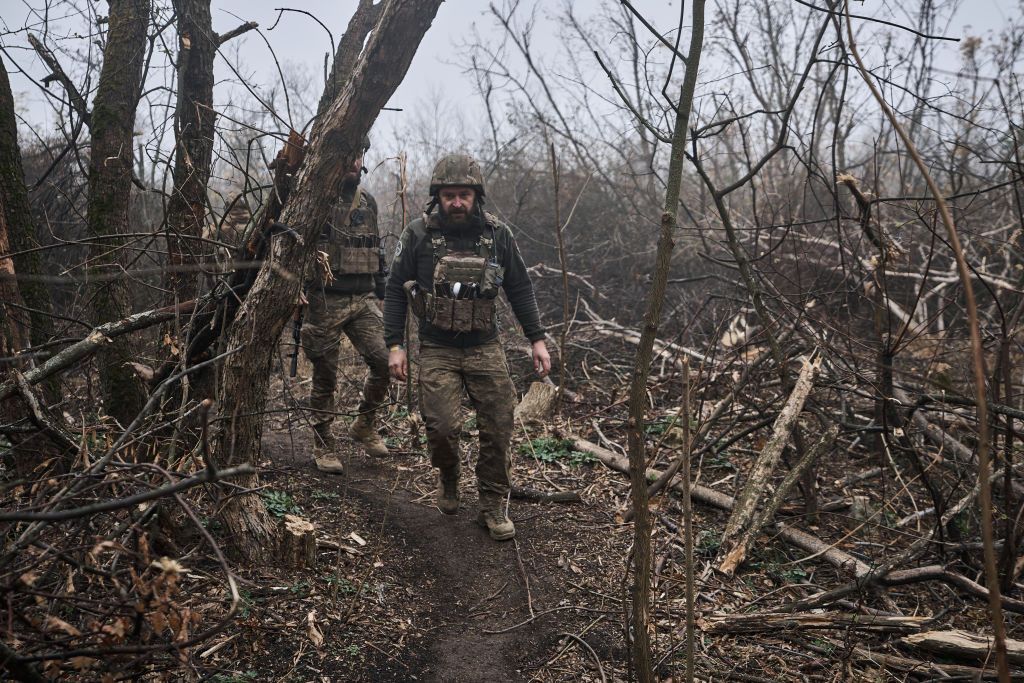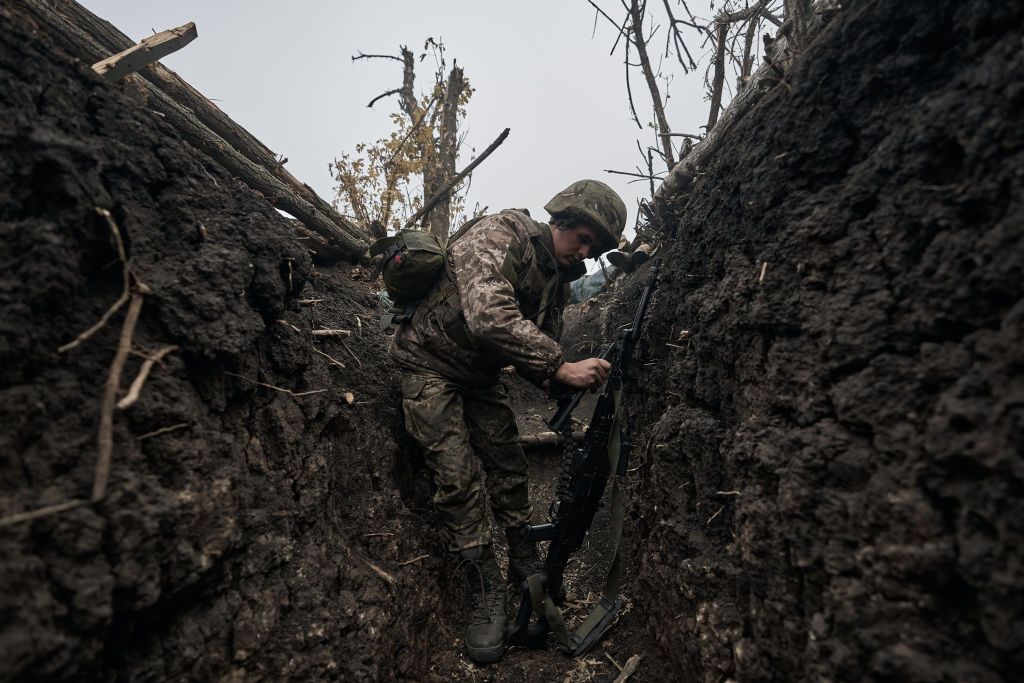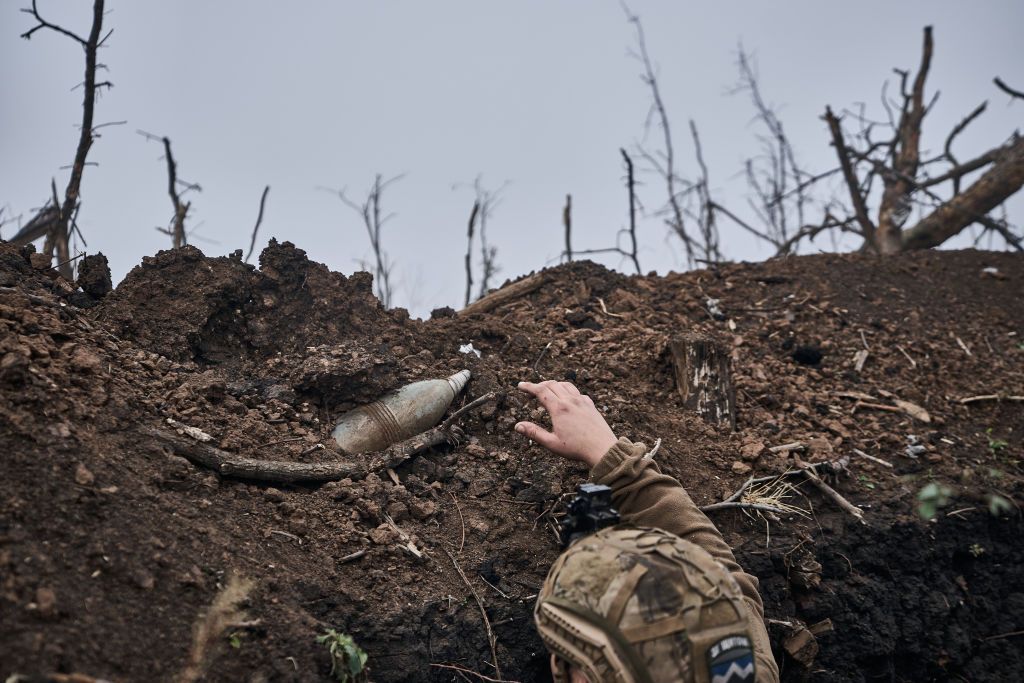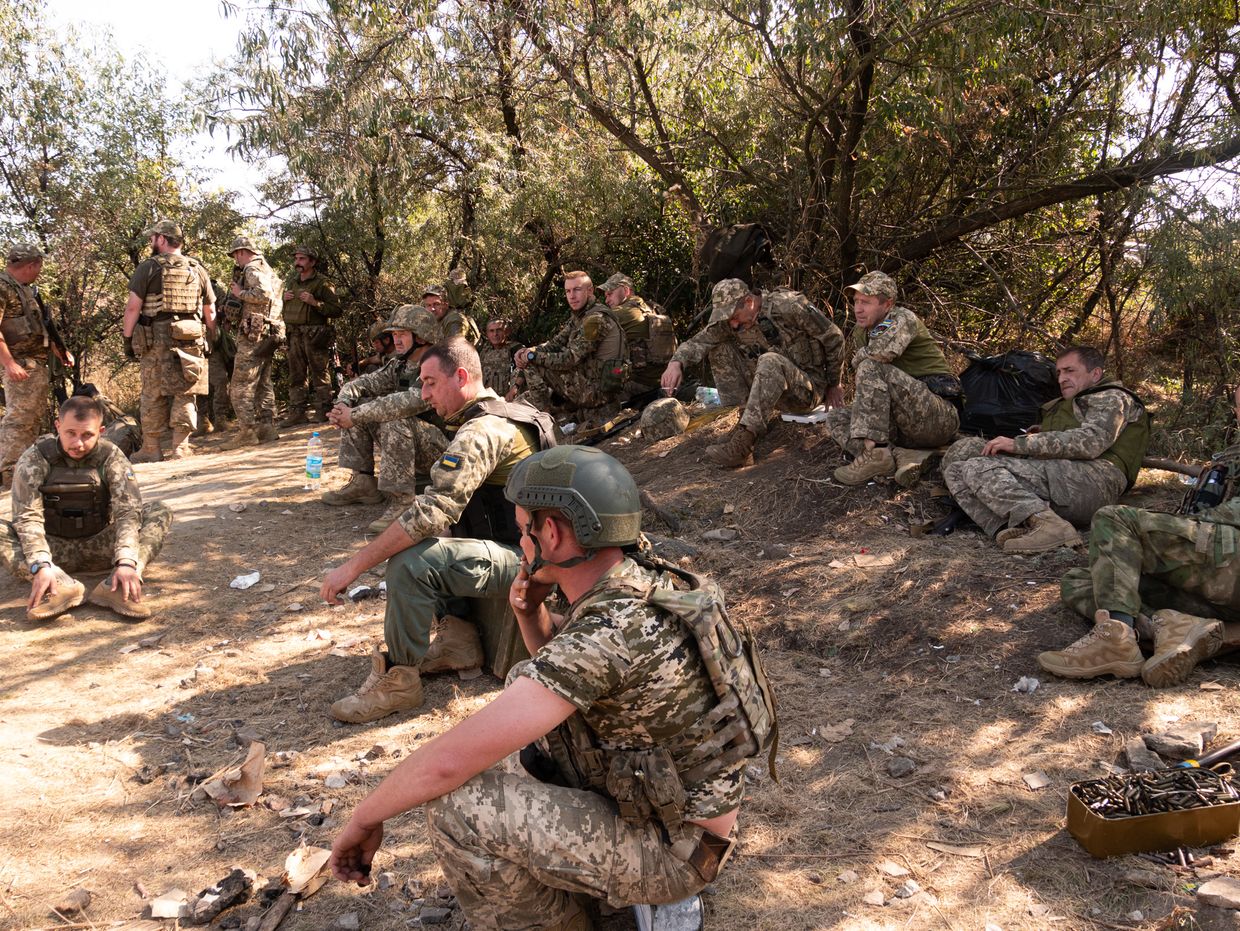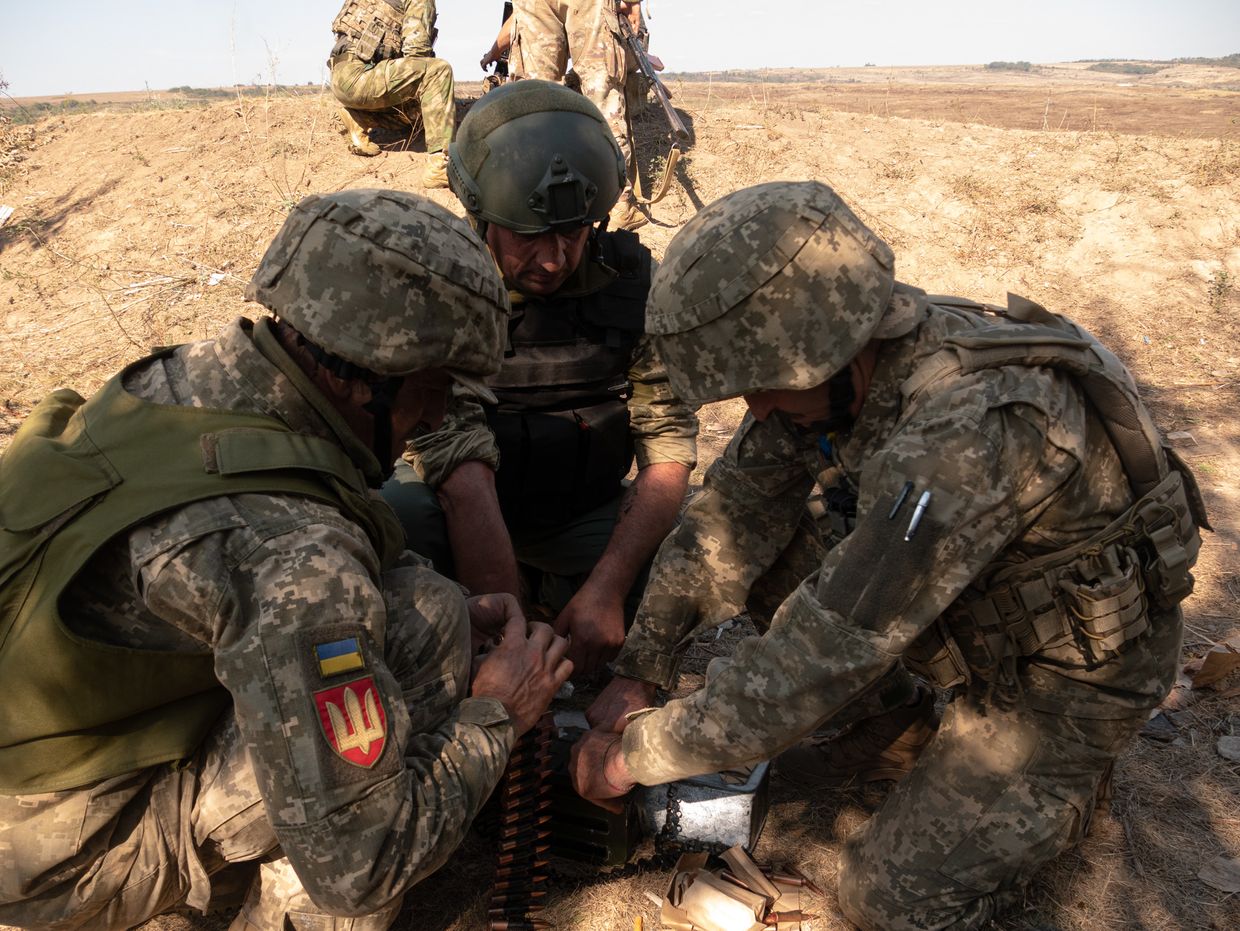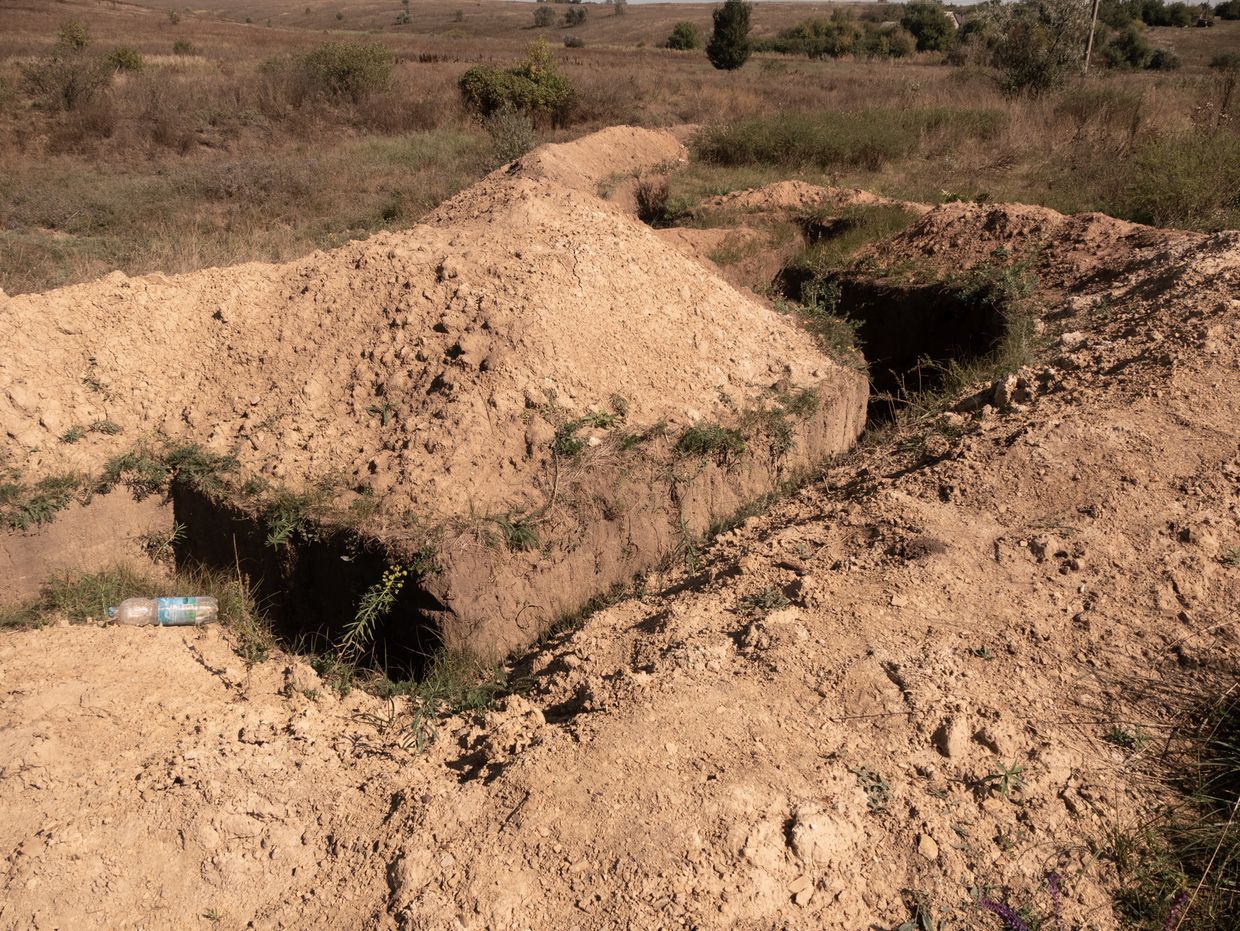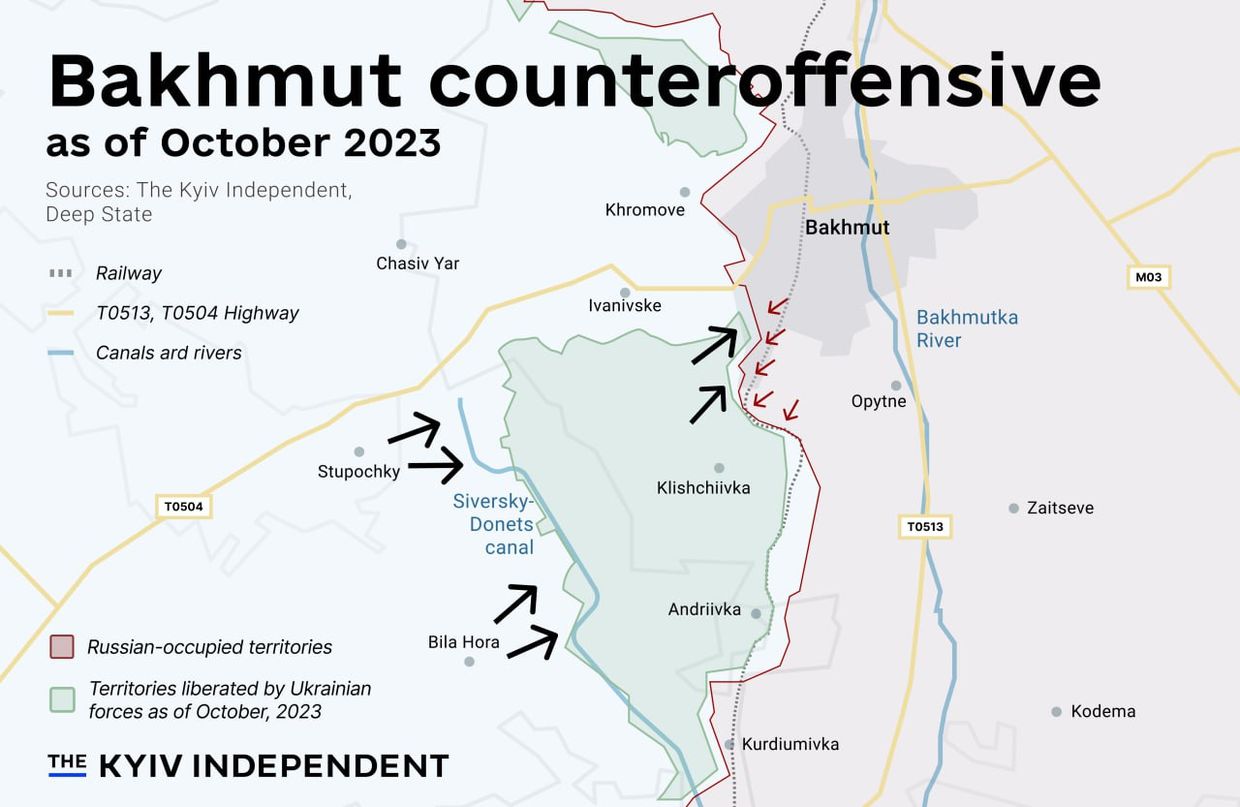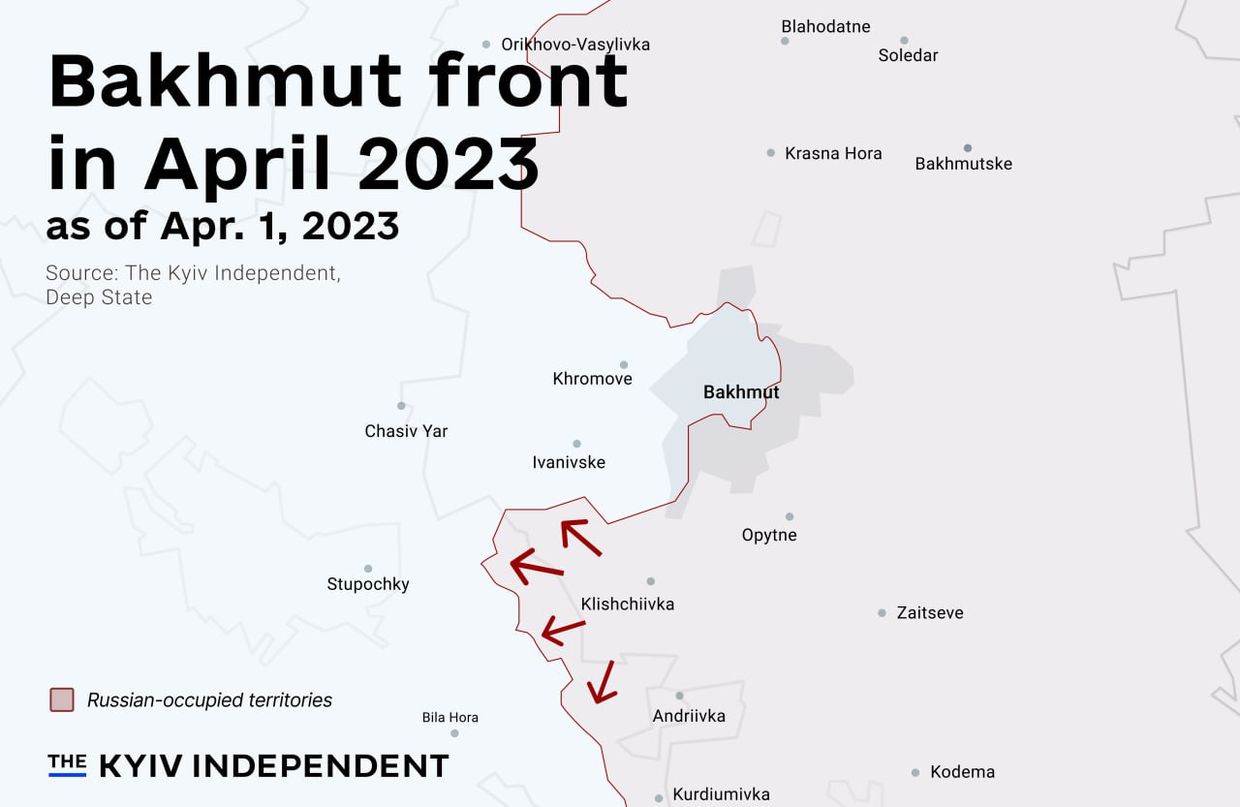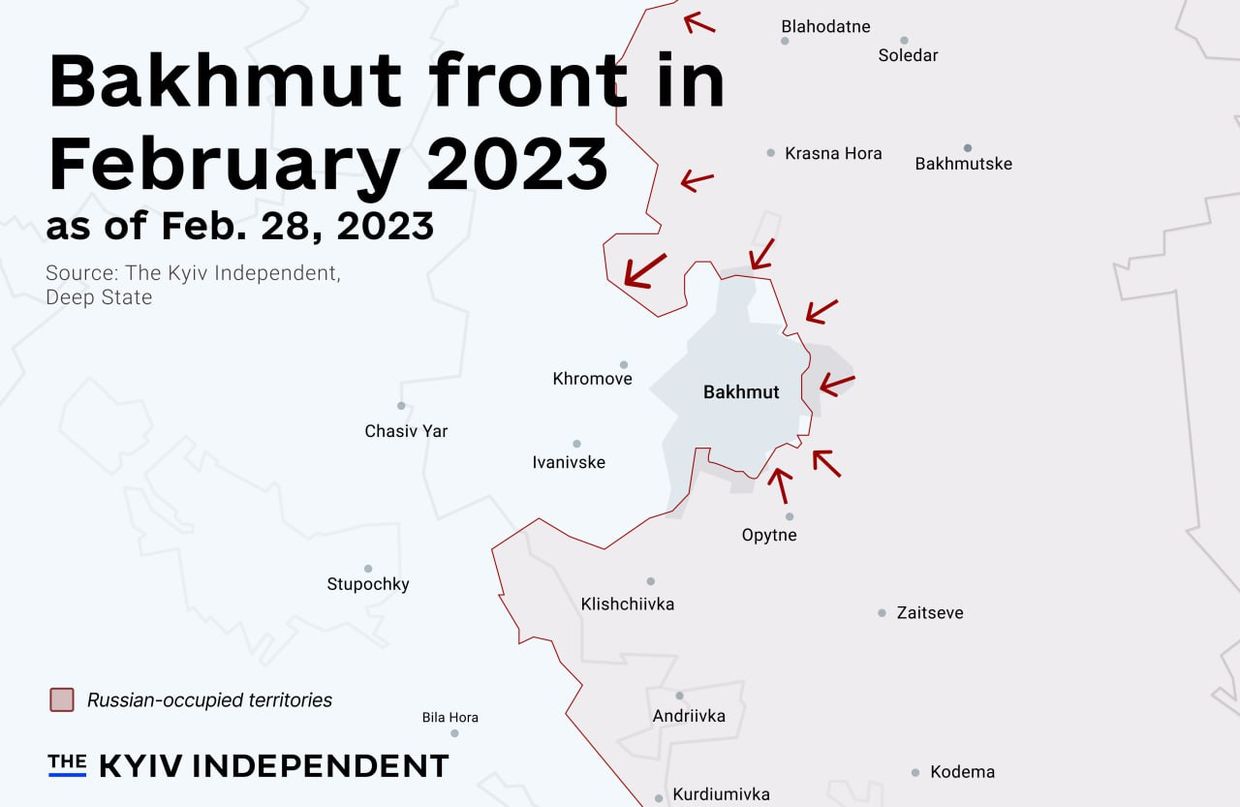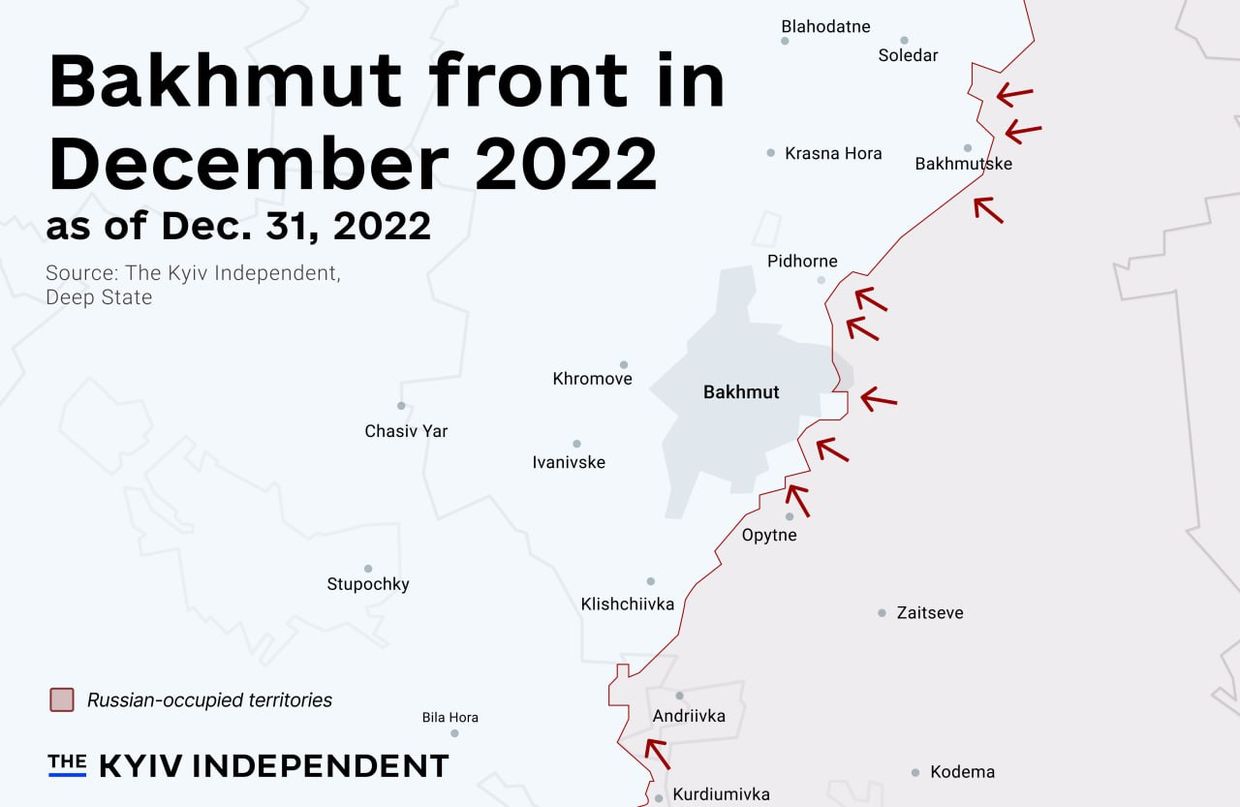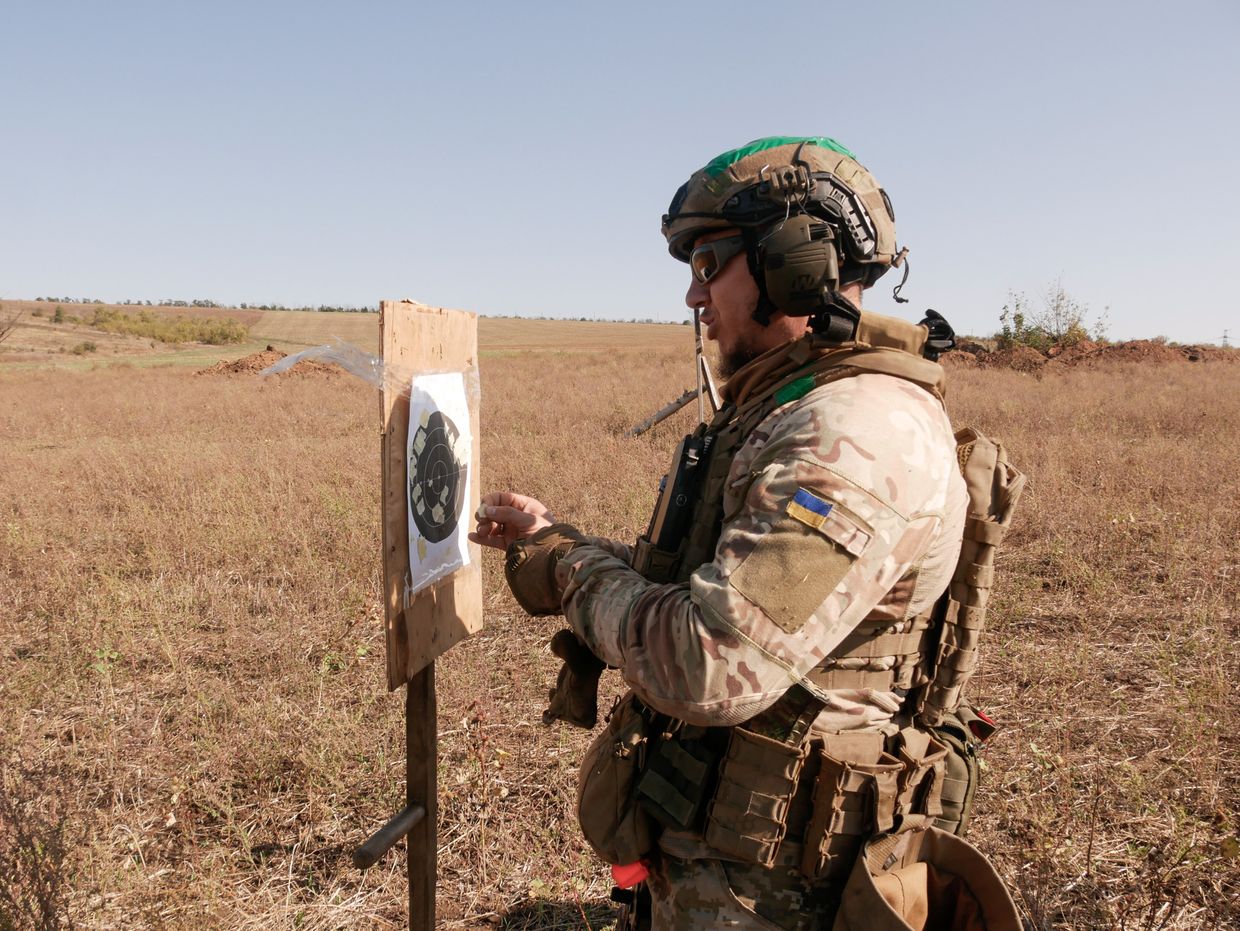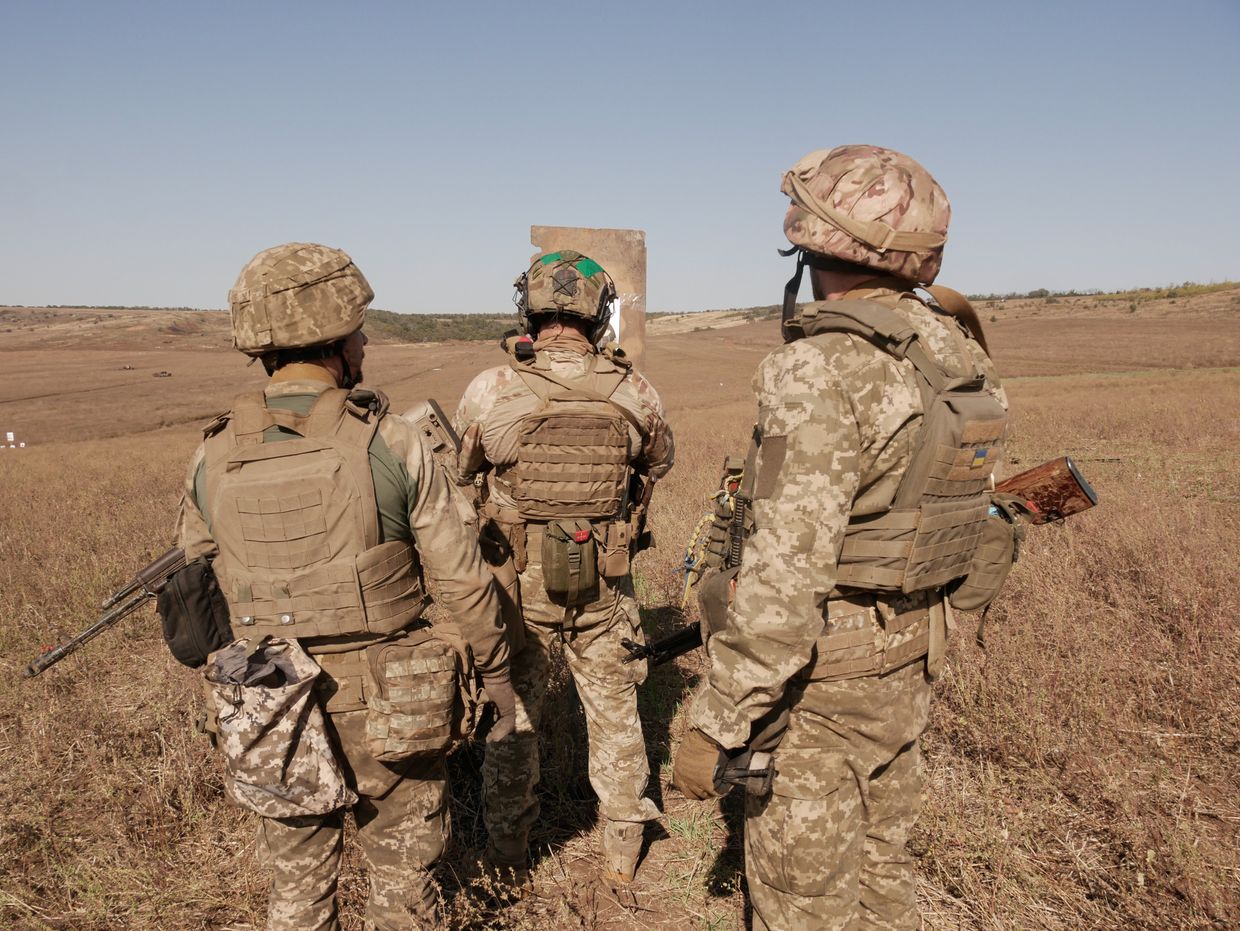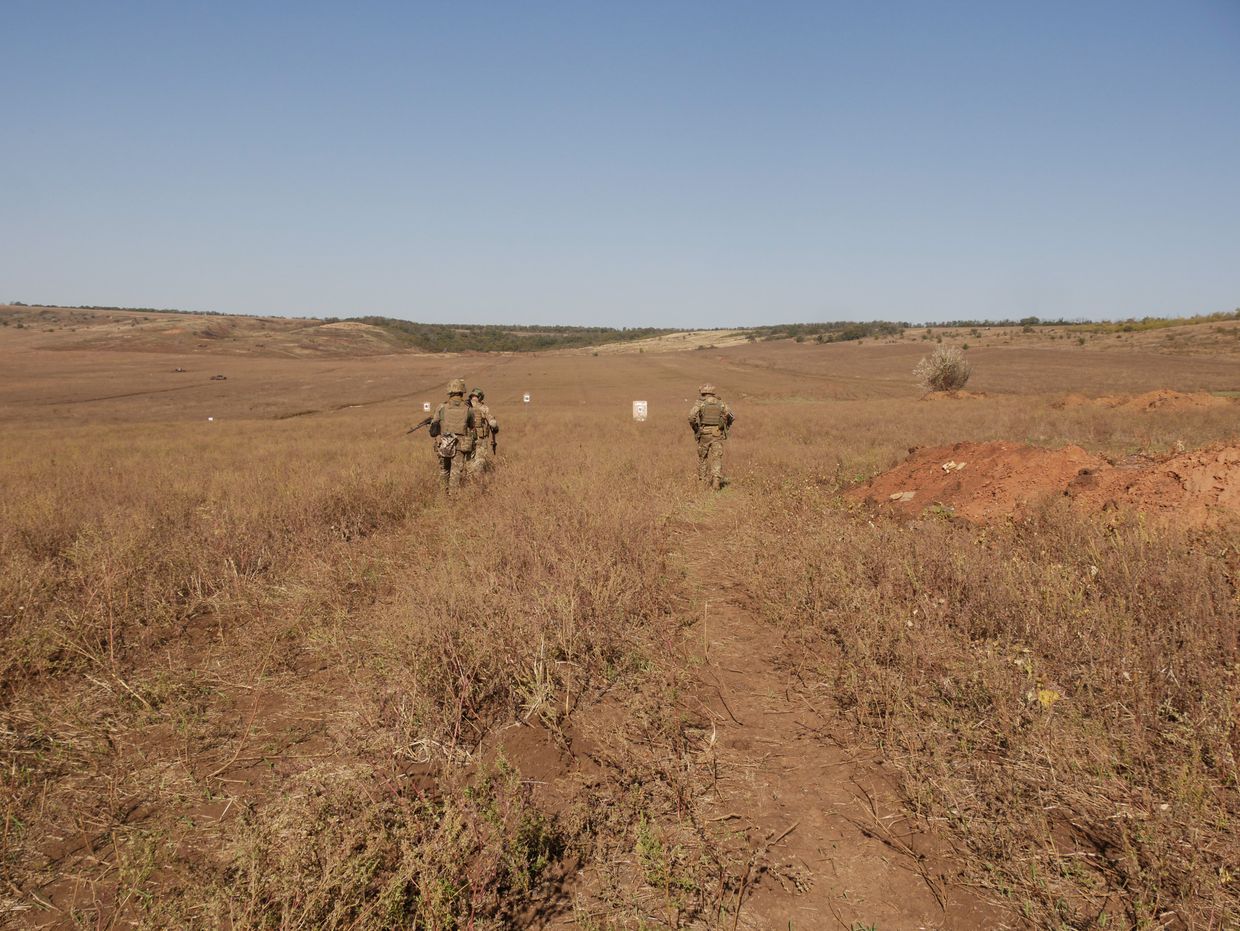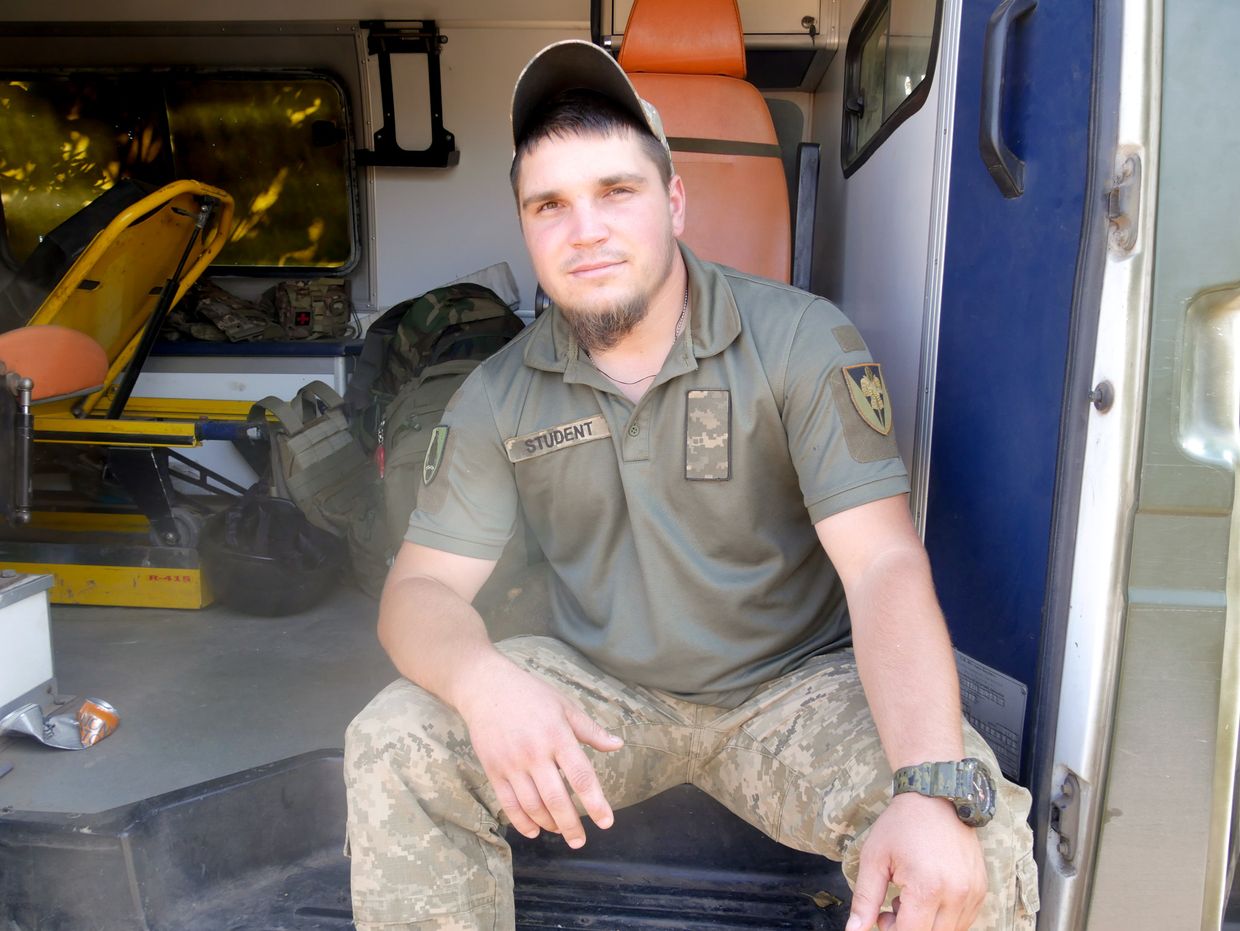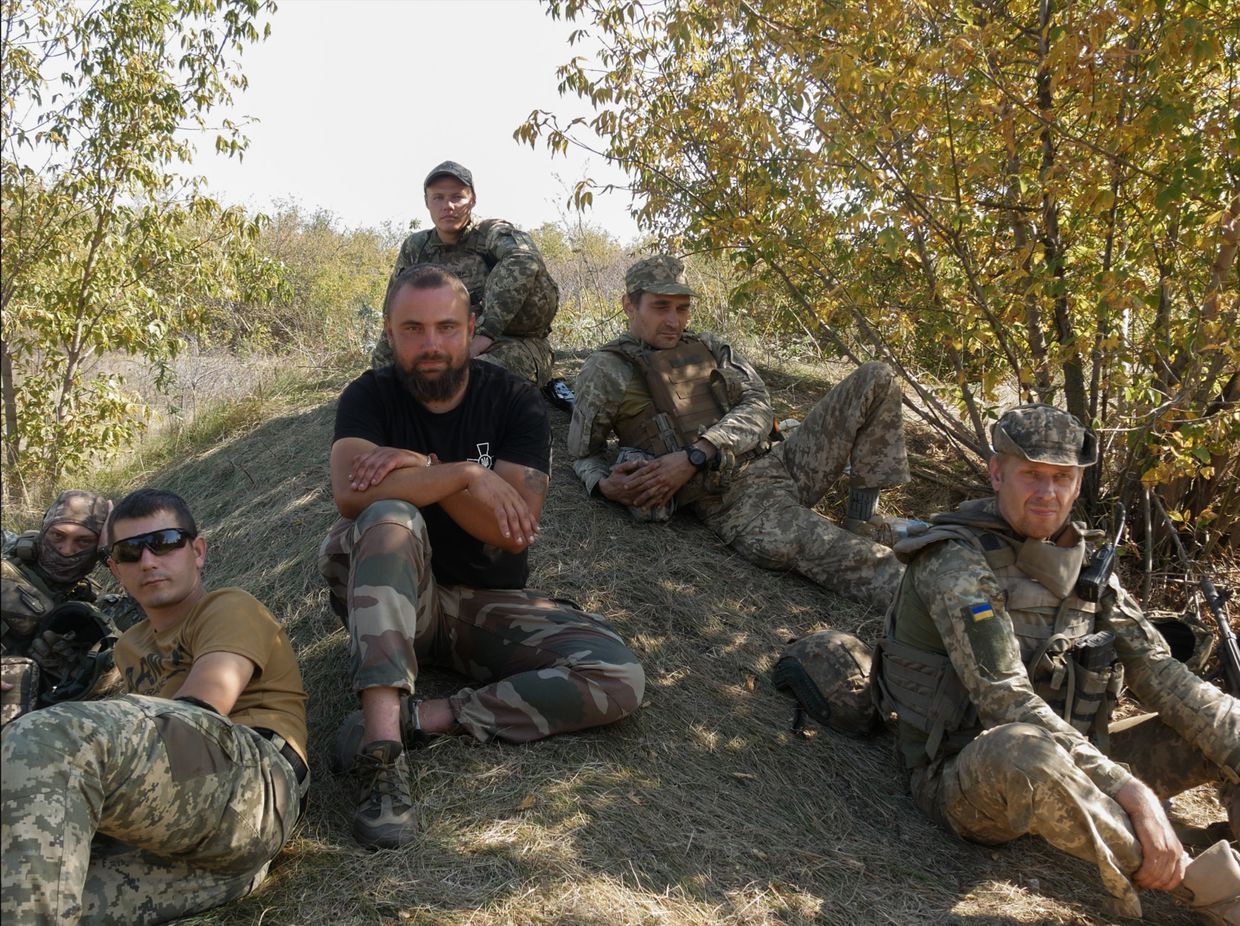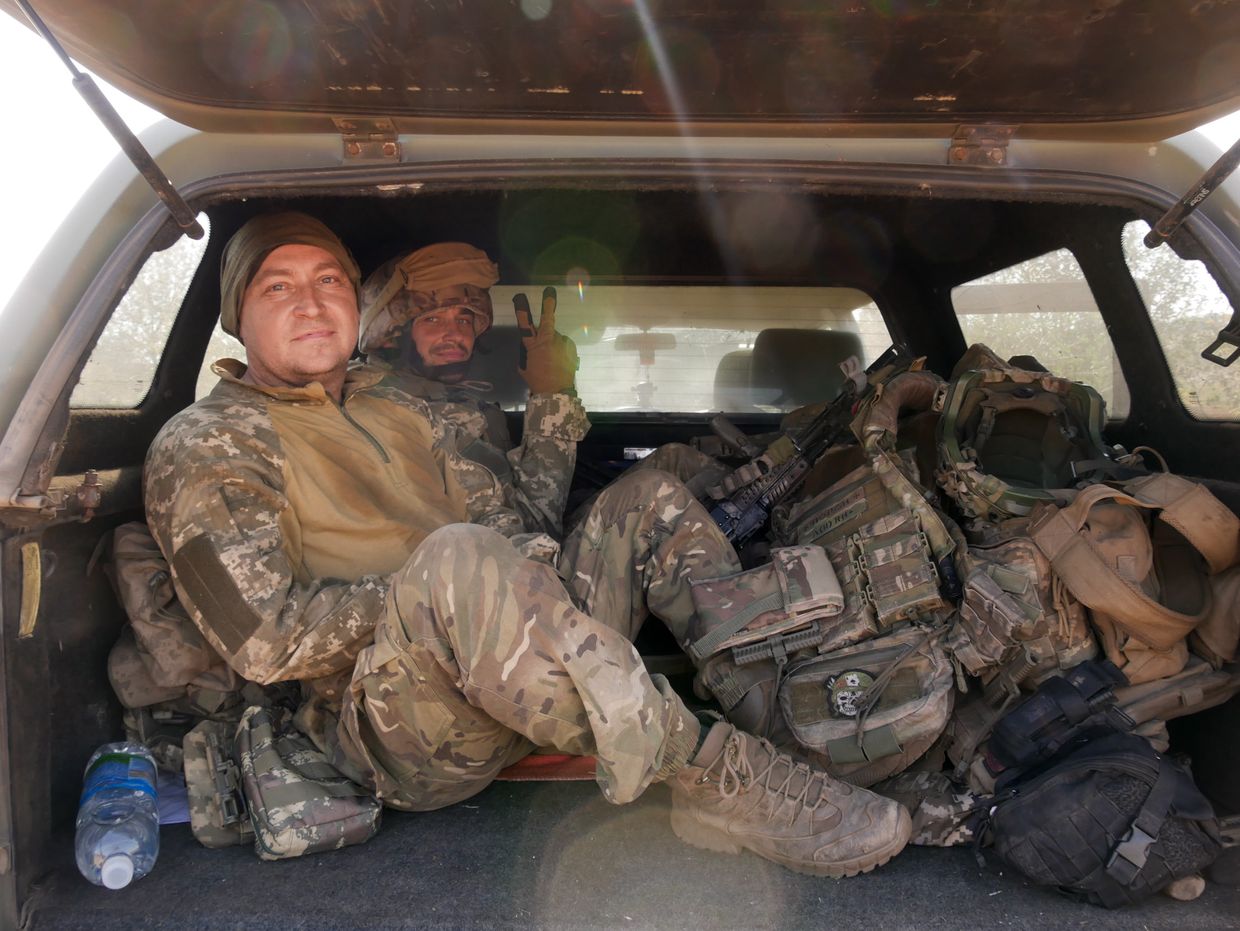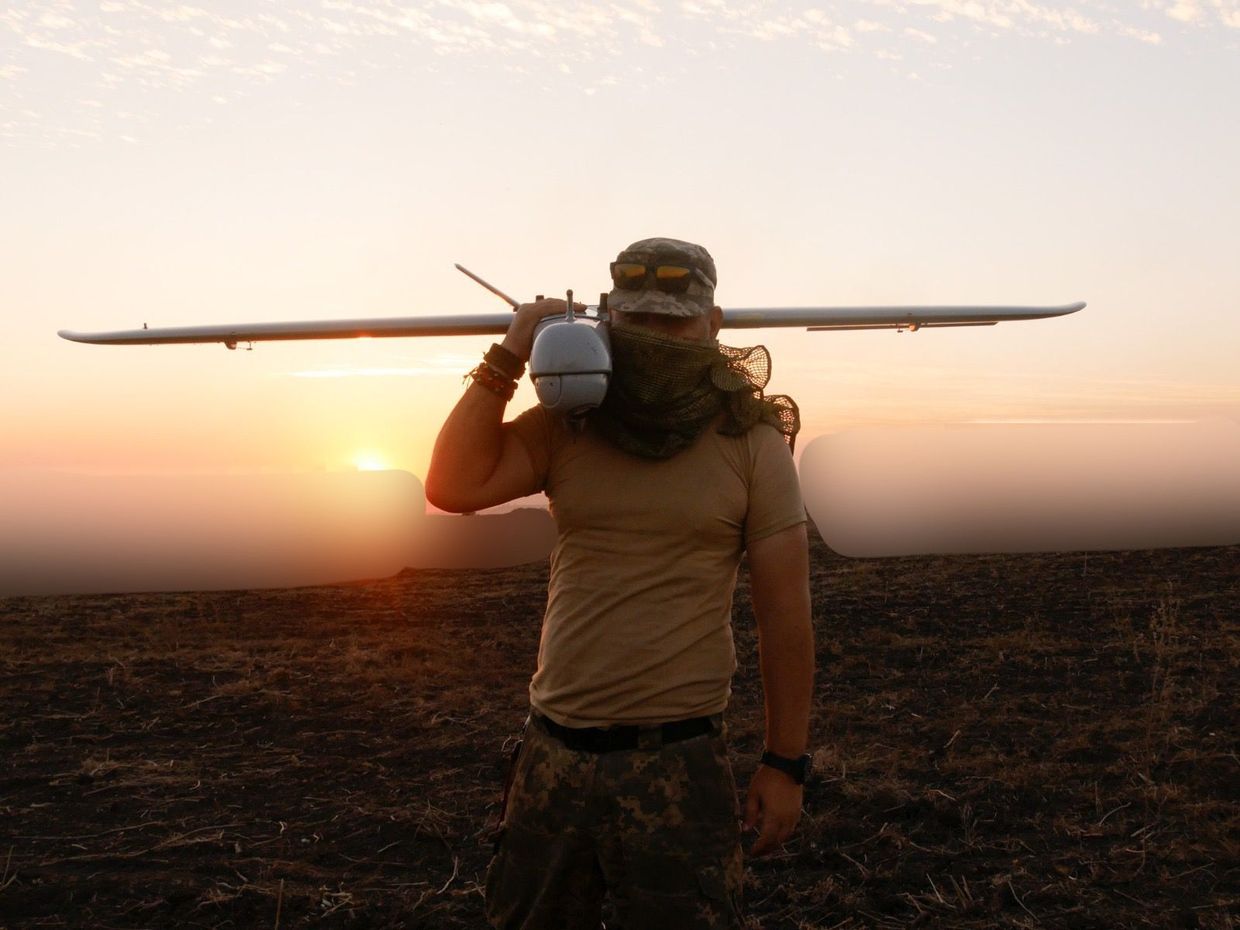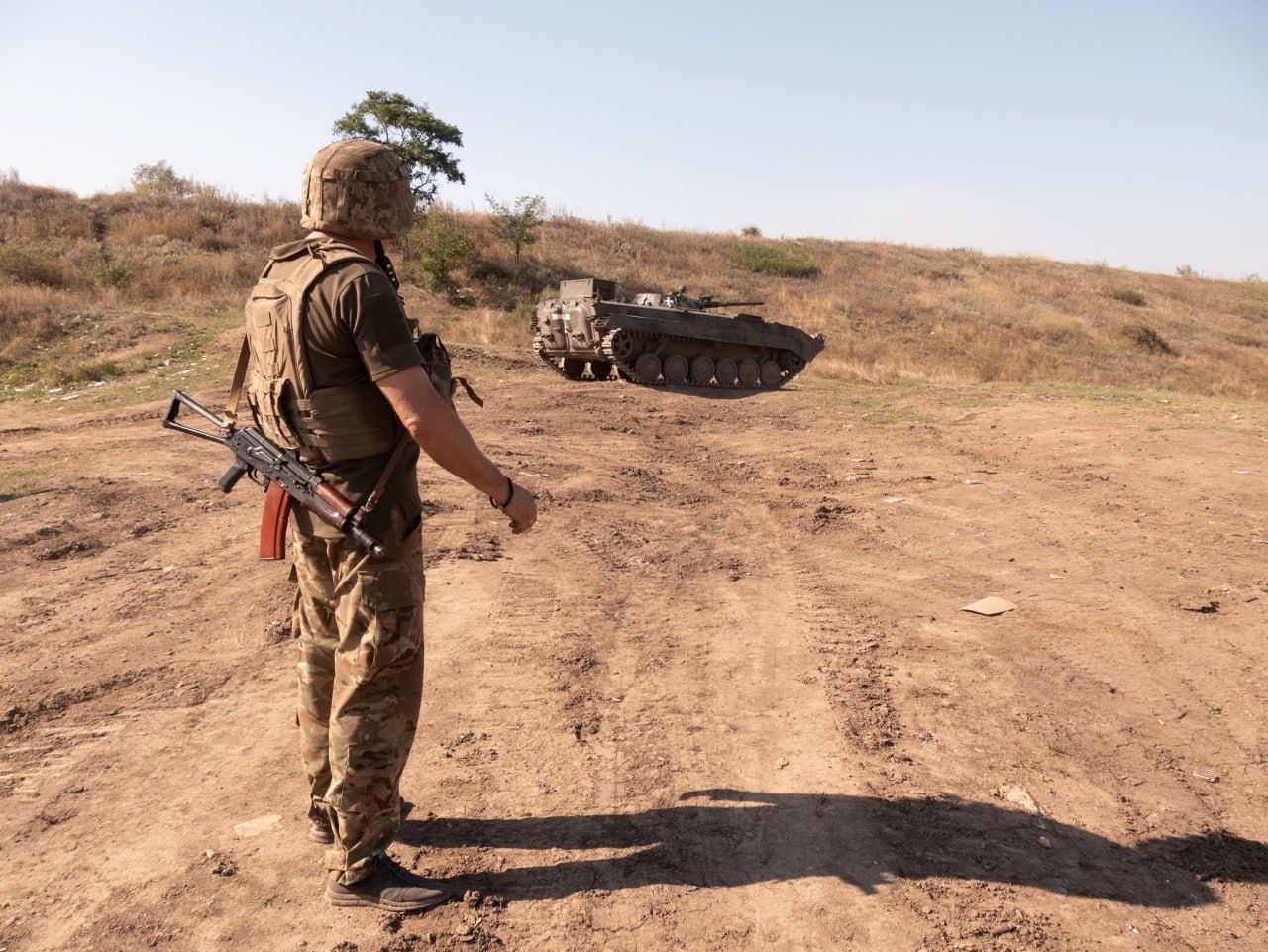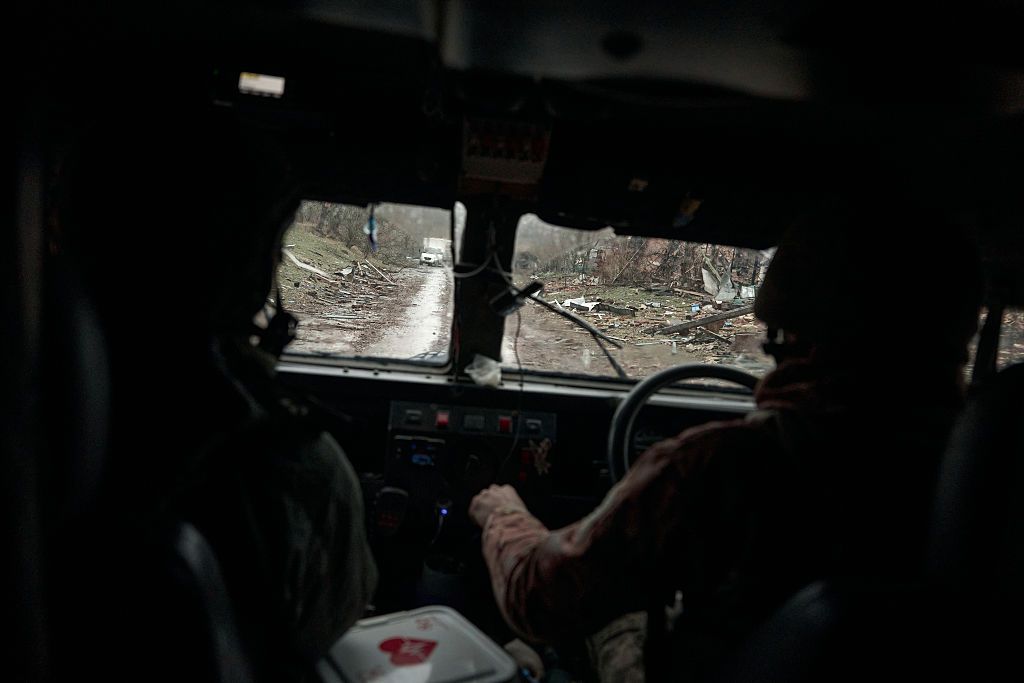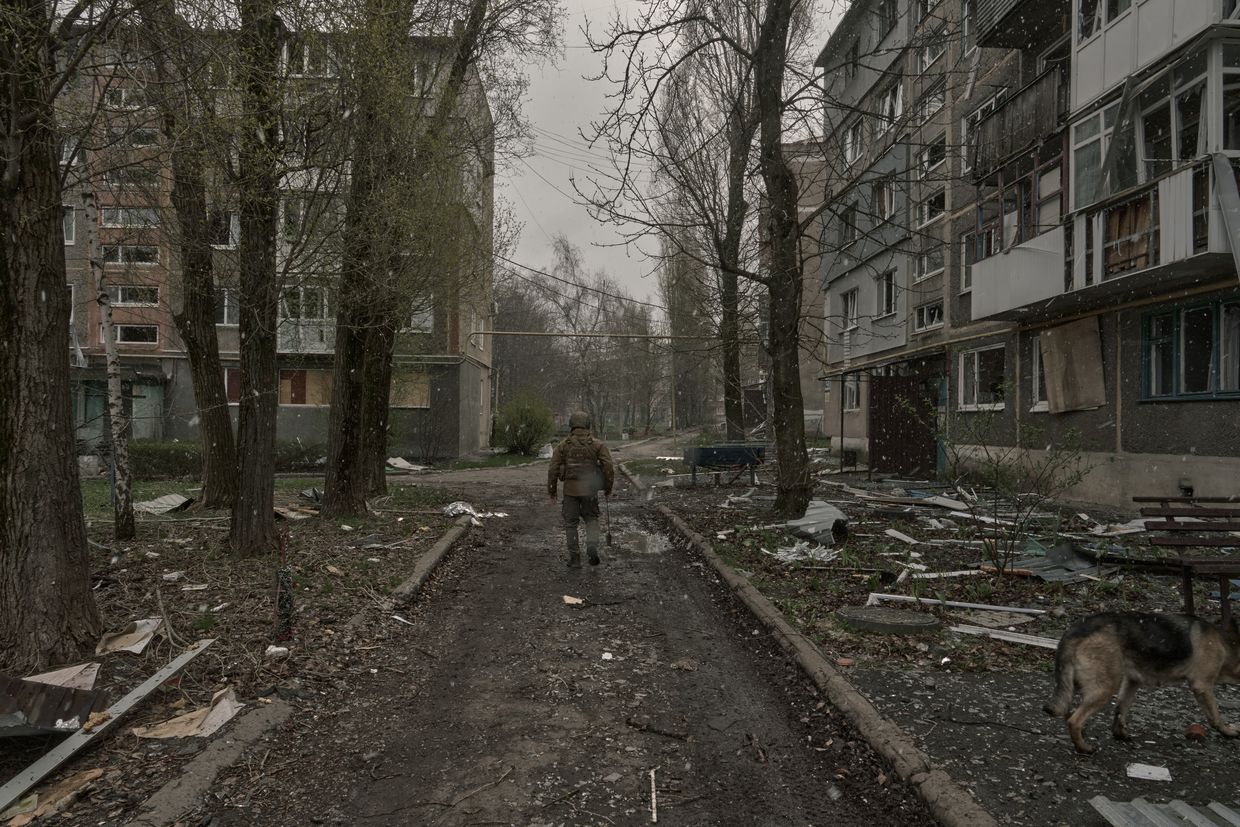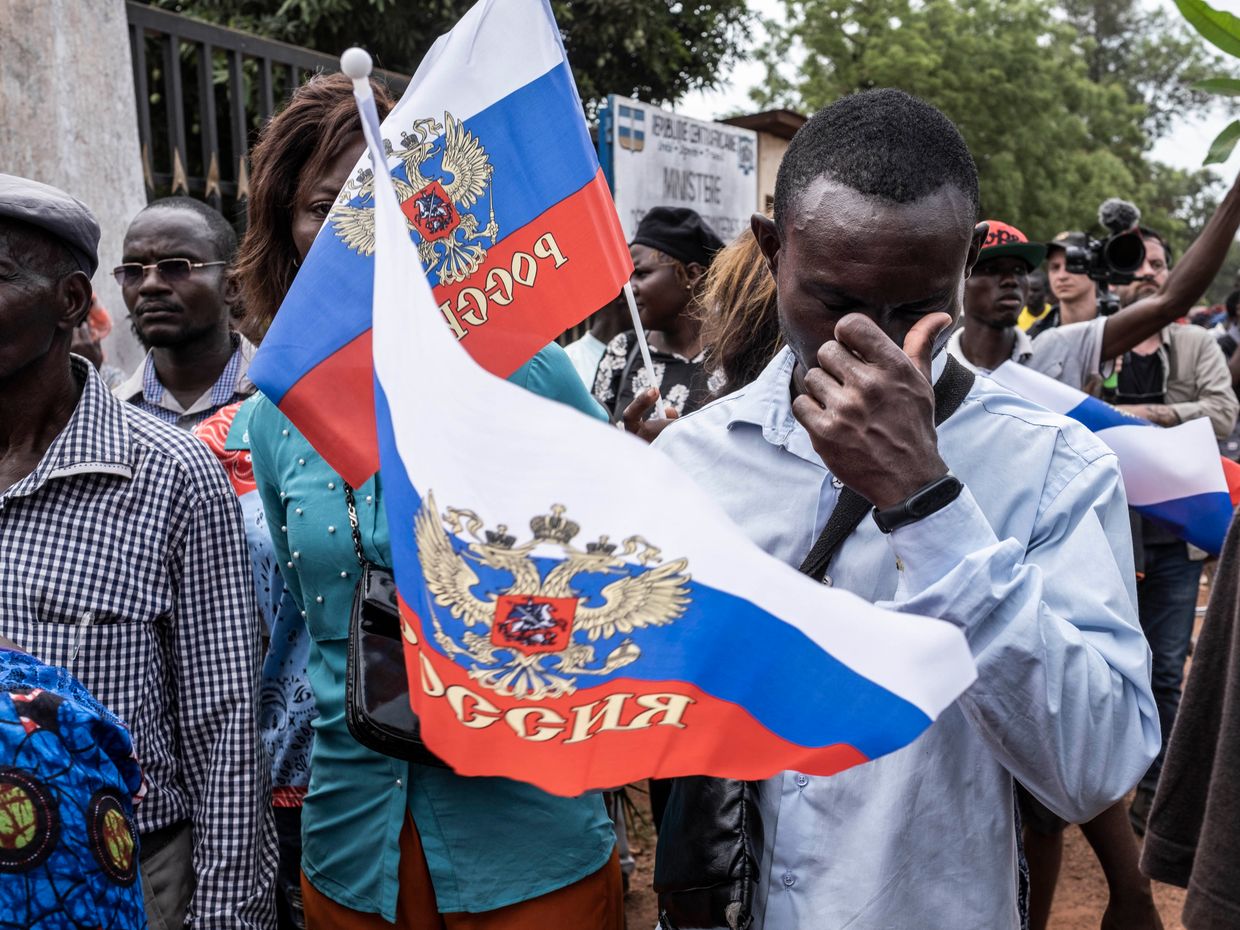Editor’s note: Some soldiers interviewed for this story declined to give their last names due to security issues amid the ongoing war in Ukraine.
DONETSK OBLAST – More than a month after his first assault operation near Bakhmut, 23-year-old soldier Oleksandr Mikulak still blames himself for not saving a comrade.
Mikulak’s 15-man group, part of the 22nd Separate Mechanized Brigade, was able to clear the first Russian position thanks to powerful strikes by Ukrainian artillery. Nine soldiers advanced forward, including Mikulak; the rest stayed behind to defend the captured position.
Things went wrong from there.
Underestimating the number of Russian troops positioned around the next target, Mikulak’s group nearly became encircled.
At that moment, his 25-year-old brother-in-arms, standing 10 meters behind him, received a shrapnel injury – dying soon from blood loss.
“I couldn’t save him, and I regret it,” Mikulak said, blaming himself for not running to his comrade earlier to help him. “Three minutes, and (he was) all covered in blood. I didn’t make it to him in time.”
Another young soldier was shot in the head, and one was captured by Russian soldiers, Mikulak said.
Everyone in the group, including Mikulak, was wounded, but they were able to escape encirclement.
Survivor’s guilt
Fighting through what feels like an endless cycle of barely escaping death in a brutal war in which so many have already fallen, Ukrainian soldiers say they are exhausted by the horror they see daily.
The soldiers – most of them civilians until 2022 – say they are coping with survivor’s guilt. Many are amazed that they are still alive.
Emotional burnout and the desire to go home are increasing as Ukraine continues to wage its counteroffensive on three main axes, including the one near Bakhmut.
Judging by how difficult it is to advance in Donetsk Oblast, however, soldiers say that they don’t expect a breakthrough anytime in the future, and not being able to see an end to the fighting is tough to cope with.
Some Ukrainian soldiers are also concerned about the possibility of the country running out of experienced, motivated fighters the longer the war rages on. Citing Russia’s three times larger population and its ability to constantly deploy massive numbers of troops, they worry about how long Ukraine will be able to keep up with the pace.
“The war will be very, very long,” says 26-year-old senior driver Roman, call sign “Ninja,” who is deployed with the 92nd Separate Assault Brigade near Bakhmut.
“We’re already running out of people.”
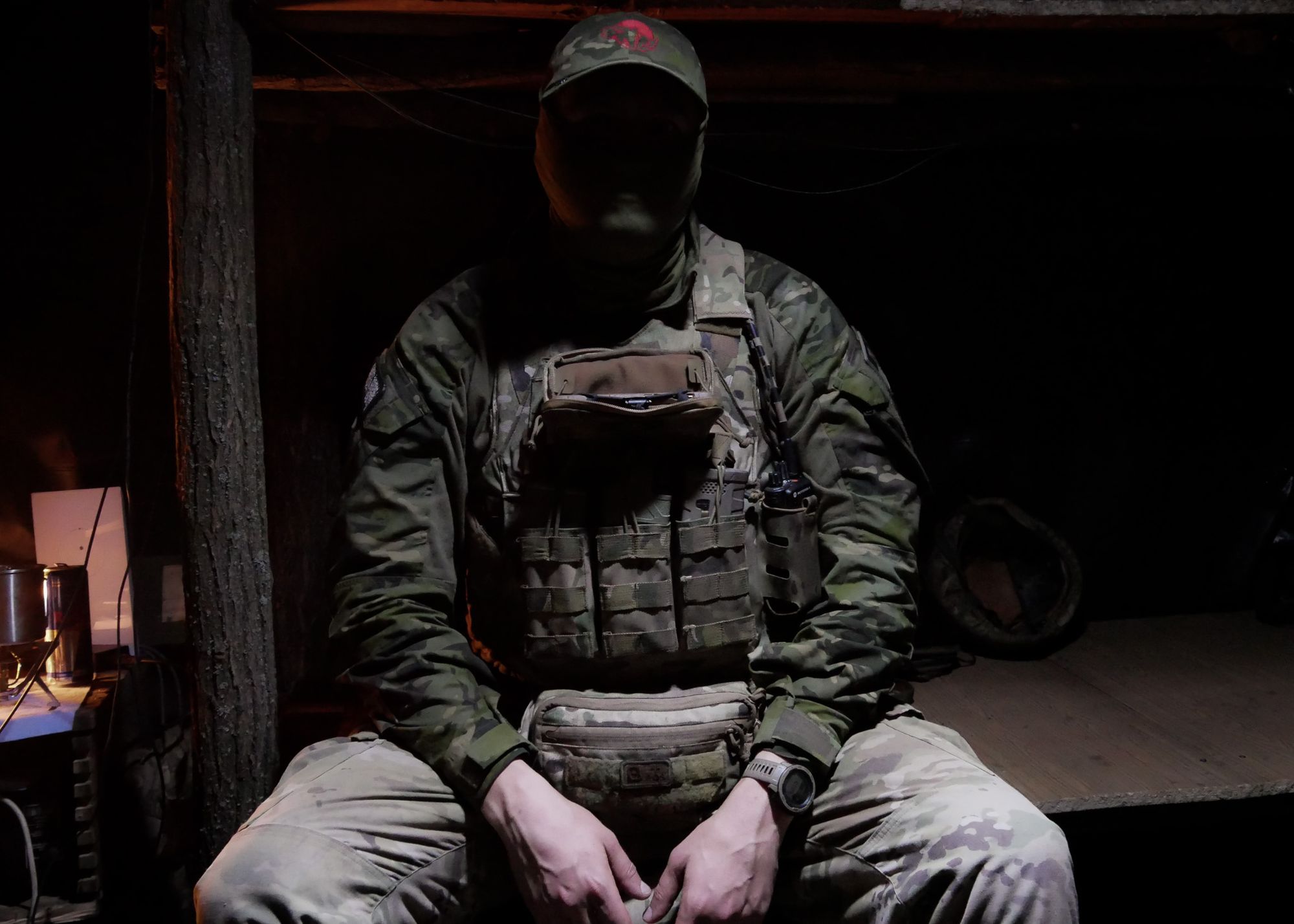
Hundreds of thousands of Ukrainians rose to fight at the beginning of Russia’s full-scale war in February 2022, joining the then 261,000-strong Ukrainian Armed Forces. But more than a year and a half later, a series of high-casualty campaigns – such as the Battle for Bakhmut – has shrunk the original force, with soldiers often saying that only a fraction of today’s soldiers have served from the start of the war.
Ukraine continues to mobilize more men, but the survival rate of raw recruits is low and often complicates the job for the more experienced soldiers, as the new troops are not psychologically or tactically ready for the reality of war, battle-hardened soldiers say.
“If combat-capable people like us run out, we could only be replaced by people who don’t know anything,” said Roman, a Kharkiv native who has been serving since 2016.
Ukrainian military authorities claim to be effectively destroying Russian troops in huge numbers. But Ukraine doesn’t provide information on the cost it pays.
When reached by the Kyiv Independent, the Defense Ministry dismissed the prospect of Ukraine running out of troops, while the General Staff of the Armed Forces declined to comment due to the topic’s sensitivity.
Neither provided the number of new soldiers the country mobilizes each month.
Austrian warfare expert Tom Cooper said there appears to be a lack of experienced commanders, but Ukraine still has over half a million troops in its ground forces, in addition to reserves.
But for the soldiers on the ground losing their long-time comrades one by one, it’s an emotional and physical battle of attrition with an uncertain future.
Bakhmut counteroffensive
Most units in the Bakhmut sector have been deployed since at least early 2023, long enough for the soldiers to remember how they used to live in the city and go to its local market on their days off.
Fast forward a year, and the picture is entirely different. Russia nearly flattened Bakhmut, once a growing city home to 70,000 and known for its salt and sparkling wine, and captured it in late May.
The initiative then passed to the Ukrainian side, with Kyiv’s forces slowly advancing on the suburbs and trying to semi-encircle the now Russian-occupied Bakhmut.
Through dozens of small daily assaults, Ukraine has made substantial gains south of the city, liberating the villages of Andriivka and Klishchiivka in early September.
The costly but carefully planned operation began in early summer.
The elite 3rd Separate Assault Brigade and the 80th Air Assault Brigade, then manning the front line about six kilometers southwest of Klishchiivka, picked up momentum and began clearing field after field in late June, said 34-year-old Denys Shulhun, a Dnipro-born senior soldier from the 3rd brigade’s anti-tank platoon.
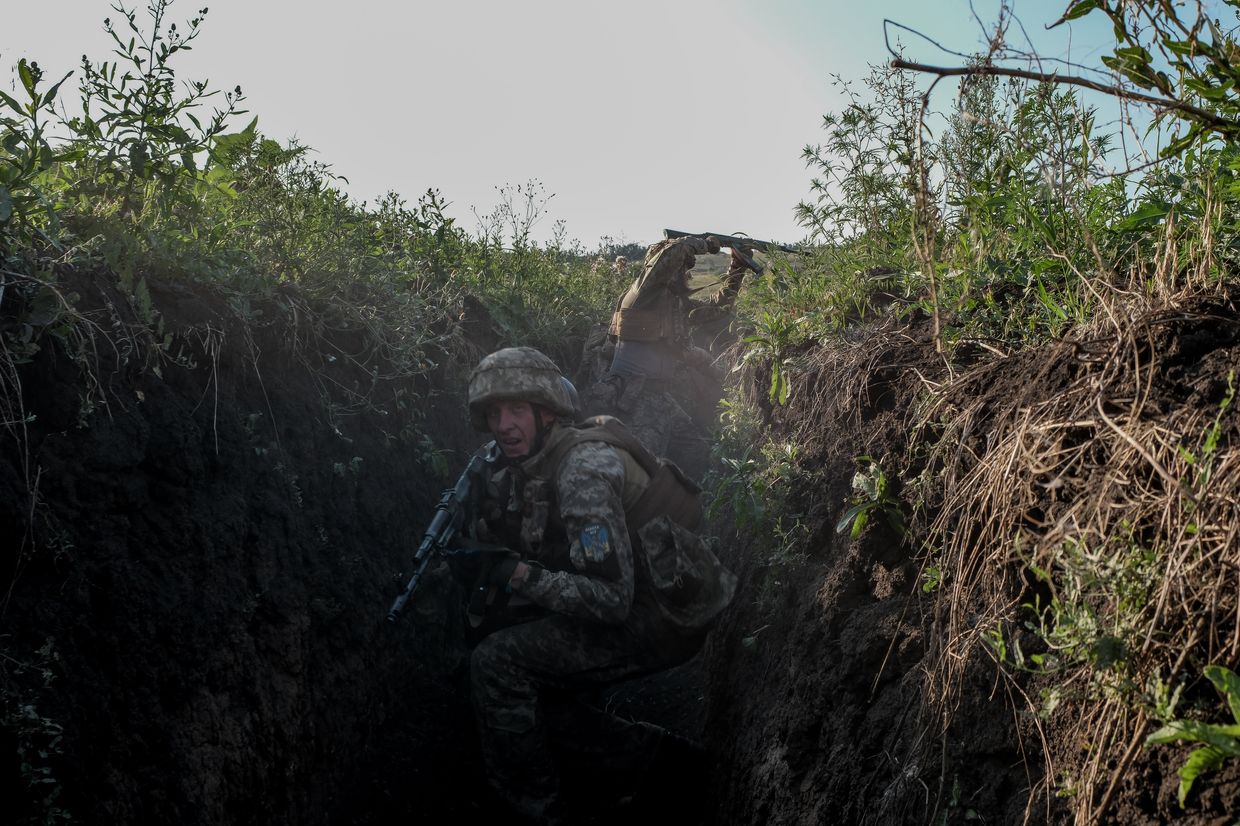
Accurately bringing powerful weapons to bear on Russian positions, Ukrainian assault teams – spread more than seven kilometers along the Siversky Donets canal, an artificial waterway south of the river it’s named after – with units finally crossed to the other side.
Approaching then-occupied Andriivka and Klishchiivka from there took about a month more, Shulhun said.
As the new positions were across the canal from Ukrainian-controlled territories, it was difficult for vehicles to reach them. Having mined Bakhmut’s surrounding areas exceptionally well, Moscow knew where Ukraine’s only options for logistics routes were – making anything driving along them easy prey for Russian artillery.
“It was difficult to get in and out of positions because the vehicles were quickly reduced by (Russian) artillery,” Shulhun said, adding that evacuations had to sometimes wait until dark.
Once the 3rd got to the edge of Andriivka, assault groups intensified pressure on the south of the village.
After a week of raids, trying to calculate Russian troop numbers and locate their most fortified positions, the assault teams made the final push to liberate the village on Sept. 14-15.
The liberation of Klishchiivka followed within a week.
But while having been forced out, Russian forces are now constantly attempting to take back lost positions.
Anticipating a further Ukrainian push, Moscow is strengthening its defenses around the railway south of Bakhmut with two to three-meter-deep mini trenches and anti-tank hedgehogs, Ukrainian assault soldiers and drone operators involved in the operation told the Kyiv Independent.
North and west of the city, Ukraine wasn’t able to make any gains, focusing on holding the existing lines.
Ukrainian soldiers deployed in the area say that their task for now is to hold on to positions, as the Russians occupy the heights, and it would be suicidal to approach them from low ground.
Snipers exchange fire multiple times a day, and Russian artillery is constantly targeting Ukrainian positions, but neither side is trying ground assaults to avoid unnecessary losses, soldiers said.
Retaking Andriivka and Klishchiivka is a “tactical success” because it brought Ukrainian forces closer to the T0513 Bakhmut-Horlivka highway, one of the main supply routes into Bakhmut from the south, according to a senior NATO official who spoke on the condition of anonymity.
Though Russia still controls the railway, which serves as an obstacle between liberated Klishchiivka and the T0513 highway, Ukraine is succeeding in fixing the Russian troops, preventing their redeployment to other areas of the front, the official said.
For fallen comrades
For the soldiers who have lost many close comrades in the more than year-long Battle for Bakhmut, liberating the ruined city is a mission they partly want to accomplish for their fallen friends.
To grind down Russia’s offensive capability, which otherwise could be deployed elsewhere, Ukrainian forces held Bakhmut as long as possible, for months – even if it meant paying a heavy price.
Among the units that endured the brunt of Russia’s relentless assault on Bakhmut was the large 93rd Separate Mechanized Brigade, well known among soldiers as a unit often deployed to the worst spots of the war to “fill in the gaps.”
“The Russians were like going to work at 8 a.m. and finishing at 6 p.m. It was literary hell there (in Bakhmut),” said Oleksandr Maroshnyk, a 31-year-old infantryman from Odesa who serves with the 93rd.
“You can’t imagine what we endured because, imagine, killing from morning to evening – it’s terrible.”
Of the original 110 people that his company had when it was formed in June 2022, only four remain in action – the rest have been killed or wounded, mainly in Bakhmut, Maroshnyk said.
The General Staff said information about losses is secret and will only be revealed after the war is over.
U.S. officials estimate that some 70,000 Ukrainian soldiers were killed and 100,000-120,000 were wounded in total since the beginning of the full-scale war – around half of the estimated Russian losses, the New York Times reported in August.
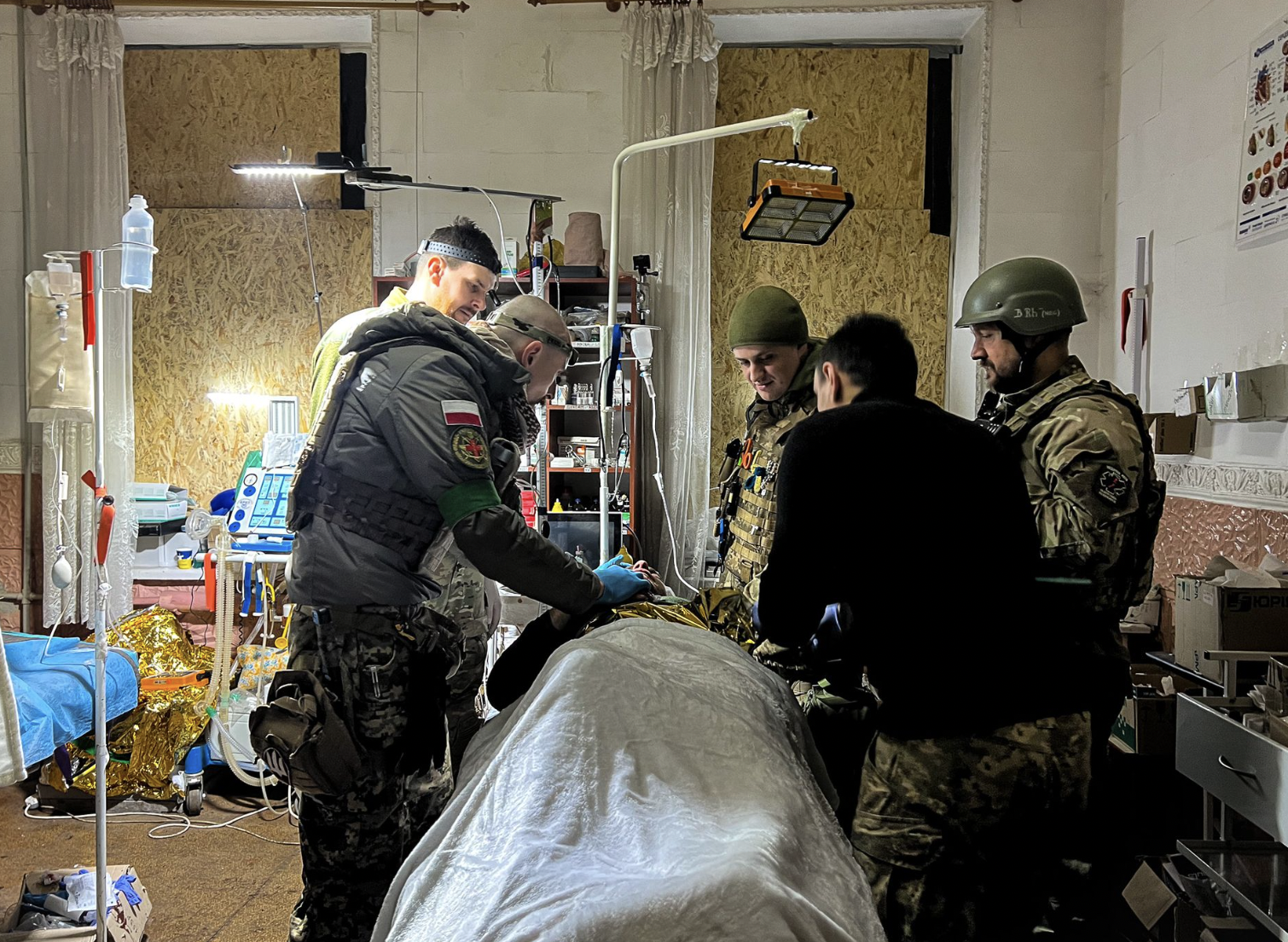
While it was extremely tough to hold off Russia’s seemingly endless human wave of assaults, internal issues, particularly the lack of communication between units, made it worse. The battlefield situation was constantly changing, and some Ukrainian infantrymen fled without a command or informing others – making it difficult to assess to whom surrounding positions belonged, according to a few dozen soldiers interviewed by the Kyiv Independent over the past months.
This, they said, led to occasional friendly fires, which lowered the morale and caused avoidable casualties. In total, soldiers and commanders estimate at least thousands were killed – including several hundred on the worst days of the battles – and tens of thousands wounded in the Bakhmut sector.
And months after withdrawing from Bakhmut, soldiers are still eager to liberate the streets where their friends were killed, and many have a mission in mind: burying comrades whose bodies they couldn’t recover.
Oleksii, a 26-year-old soldier with the 17th Separate Tank Brigade, for example, hopes to retrieve the body of his 40-year-old company commander, left behind in the ruins.
Right after a Russian hit on his company’s command center killed at least 13 people in April, Oleksii was able to pull out the body parts of the seven victims who were on the second floor of the garage with the help of his comrades – but not those in the basement.
“I pulled out limbs …, pulled out one head, half of a body of these seven people,” Oleksii added.
“He was like a father (to me),” Oleksii said of his commander Oleh, whose body was left behind in the basement. He has vowed to bury him.
Oleh is survived by his wife, parents, and two kids.
No end in sight
And while the Ukrainians say switching to the offensive has been better for morale than staying in one spot, the battle is no less difficult.
Multiple Ukrainian artillery units cited a severe lack of ammunition, particularly mortar bombs, and said they had to preserve the shells. Neither the Defense Ministry nor the General Staff confirmed the soldiers’ concerns when approached by the Kyiv Independent.
While issues may exist in Ukraine’s logistics network for weapons, Western nations are to blame for Ukraine’s ongoing ammunition shortage problem, military expert Cooper said.
He said Western nations are delivering fewer than 100,000 shells per month to Ukraine, which is three times less than the amount that Kyiv needs. Ukraine has to use most of the shells in Zaporizhzhia Oblast due to its strategic importance in the counteroffensive and is forced to ration the small amount left for other fronts, Cooper added.
Since the beginning of the full-scale war, top Ukrainian officials, including President Volodymyr Zelensky, have pleaded for a much larger supply of ammunition from Ukraine’s Western allies so as to be able to compete against Russia’s artillery superiority.
NATO and Western officials say, however, that they are providing enough ammunition and are stepping up production to provide even more.
Having fought much of the war with limited resources, Ukrainian soldiers are familiar with working around such problems. The hard truth for the soldiers, however, is that the war is a marathon with no end in sight, and they are desperate not to lose any more comrades.
“I’m not scared of death. But how many guys were killed,” 28th Separate Mechanized Brigade infantryman Anatoly, 41, from Vinnytsia Oblast, said, struggling to find the words to describe his shock.
“When will this f*cking war end? How many more friends killed do I need?”
Anatoly’s words were repeated by other soldiers – especially the infantrymen, who often refer to war as “a meat grinder for both sides.”
In a comment to the Kyiv Independent, the Defense Ministry said that the psychological state of the military is “restricted information that is not subject to disclosure.”
“I just want to go home, I’m so tired,” Anatoly blurted out wiping away tears, as shelling was heard in the background.
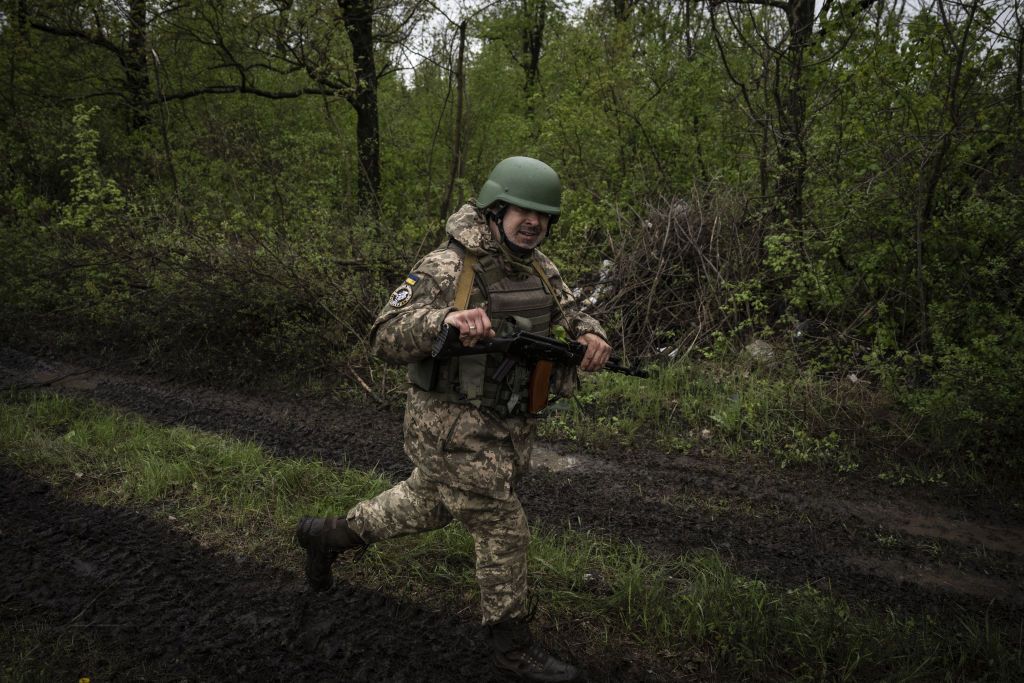
______________________________________________________
Note from the author:
Hi, this is Asami Terajima, the author of this article.
Thank you for reading our story. While reporting for this story in the Bakhmut area, I found out that a few soldier friends here were killed in action. Though the losses are extremely painful, I feel privileged to have had the opportunity to tell their raw testimonies of the war to the world. My colleagues and I will keep doing what we can to highlight the voices of Ukrainian soldiers through their darkest hour so more people know about their extraordinary bravery.
To help the Kyiv Independent continue telling stories that would otherwise not be told, please consider becoming our supporter.




